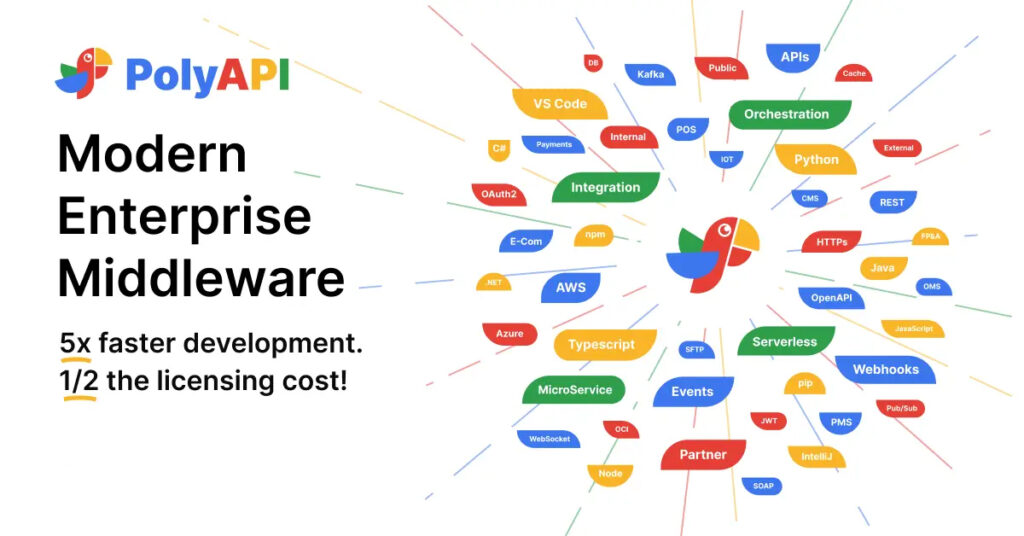The pace at which technology advances has necessitated businesses to be agile, adaptive, and quick in their development processes. An integral part of this development efficiency revolves around APIs – tools that allow different software applications to communicate and work in tandem. In this world of rapid transformation, the duration of the development cycle can either propel a business ahead or anchor it down. PolyAPI, with its innovative use of AI, promises to be the catalyst for the former.
Decoding the Development Cycle
In software development, the cycle refers to the time taken from conceptualizing a feature to its deployment. Several factors influence this duration, from initial design and development to testing and integration. Traditional methods have often needed to be more convenient when integrating APIs, involving scouring through documentation, ensuring compatibility, and ironing out redundancies.
To better understand the inefficiencies and challenges of the traditional development cycle, especially when it comes to API integration, consider the following statistics:
- Integration Time: A study by MuleSoft found that, on average, businesses spend approximately three months integrating a single API. This extensive time frame impacts project timelines and ties up resources that could be utilized in other value-adding activities.
- Documentation Overload: In a survey by Postman [PDF], 68% of developers cited that comprehending API documentation was the most time-consuming part of their job when working on integration tasks. Such extensive periods of understanding APIs can drastically lengthen the overall development cycle.
- Redundancy and Overlaps: According to Cloud Elements, businesses use an average of 18 distinct APIs. The alarming revelation was that many of these had overlapping functionalities, leading to redundancies and added complexities during integration.
- Interoperability Challenges: A Forrester report highlighted that 45% of businesses faced interoperability issues when integrating third-party APIs, resulting in extended development cycles and increased troubleshooting time.
The implications of these stats are clear: the traditional methods of API integration, dominated by manual processes and siloed operations, could be more efficient and efficient. In a rapidly evolving digital landscape, where businesses must be agile and adaptive, such protracted development cycles can severely hamper growth and responsiveness to market needs.
The AI-Driven Revolution
Enter PolyAPI. By leveraging the capabilities of generative AI, PolyAPI offers a transformative solution to the challenges plaguing traditional API integration. Here’s how:
- Intuitive API Discovery: Instead of manually navigating complex developer portals and documentation, PolyAPI’s AI-driven approach helps developers discover relevant APIs quickly, making the integration process more streamlined and intuitive.
- Avoiding Redundancies: By identifying and understanding all the APIs within an organization, PolyAPI ensures no duplication of functionalities. This not only reduces the clutter but also translates to cost savings.
- Facilitating Team Collaboration: PolyAPI’s AI fosters a more collaborative environment by making APIs easily discoverable. Teams can swiftly identify if a needed functionality already exists, reducing the instances of ‘reinventing the wheel’ and thus expediting the development process.
Development Efficiency
Incorporating PolyAPI’s AI-driven methodology into the development process can significantly reduce the development cycle. Projects that took months will now take days. Such efficiency leads to faster deployments and translates to financial savings, better resource allocation, and heightened responsiveness to market changes.
For businesses, the implications are clear: quicker turnarounds, improved efficiency, and a significant competitive edge in the marketplace.
As consumer experiences become more intricate, tools that simplify and enhance processes will be at a premium. PolyAPI, with its revolutionary approach to API integration, promises to be one such tool. Drastically reducing the development cycle allows businesses to be more agile, responsive, and competitive. We invite you to contact us if you’re interested in reaping these benefits and are eager to participate in this transformative journey. Dive into the future of efficient API development by participating in our beta program. Your feedback and insights will be invaluable in shaping this new era of APIs + AI.
